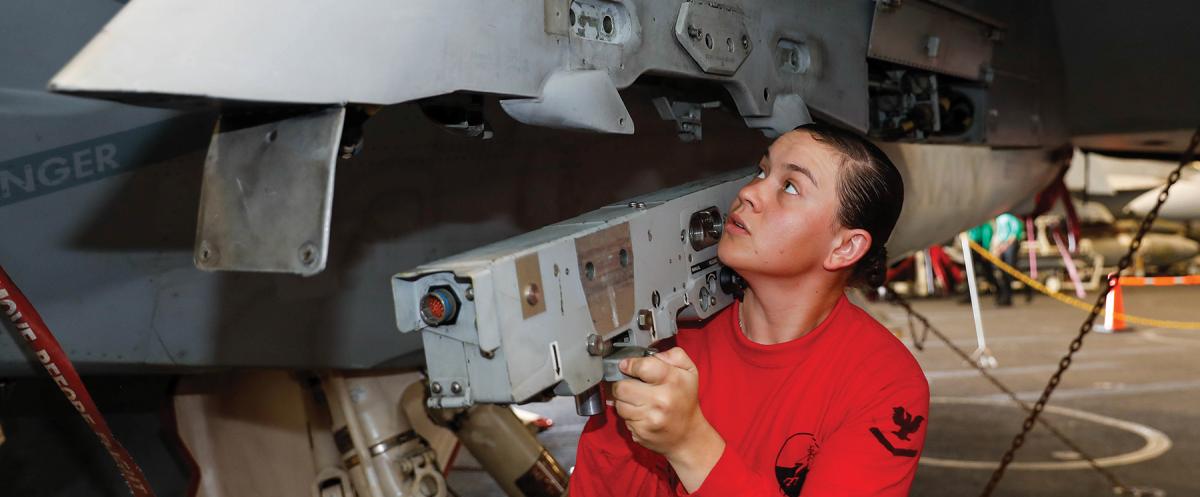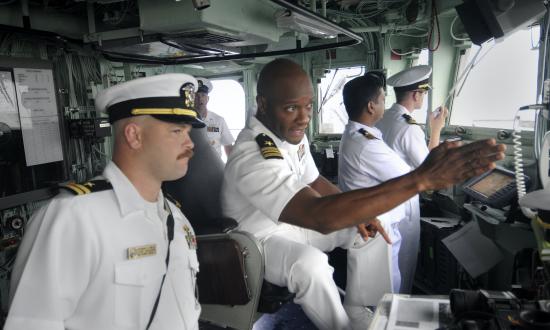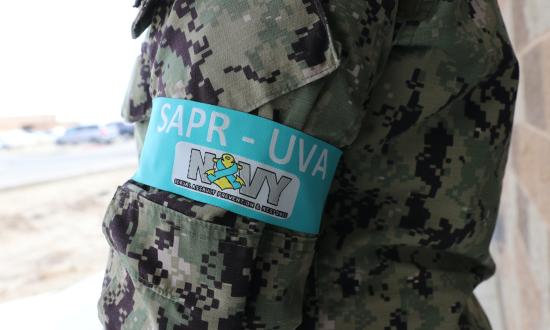In the wake of 2020’s civil unrest, senior Department of Defense leaders, including the Chief of Naval Operations, messaged the importance of diversity and inclusion within the U.S military. Although this discussion was a positive step toward advancing the Navy’s culture, there was little to no discussion on another pervasive inequity plaguing the service: gender bias. One significant manifestation of the Navy’s ongoing gender bias is the insidious and largely unacknowledged issue of androcentric language.
Gender-specific language is hegemonic (maleness is the default) and commonplace in the Navy, standing in direct opposition to the principles supported by its senior leaders. Terns used across the enterprise such as manpower, manning, man overboard, man the rails, sideboy, manhours, ten-man working party, use of “guys” for a mixed audience, and the suffix “man” in rate names are symbols of the exclusionary construct female shipmates confront daily. These terms can alienate up to 20 percent of the Navy’s workforce and 50 percent of potential recruits and shape subtle prejudice. As Dr. Chelsea Harrison and her coauthors wrote in The Annals of Surgery, “One of the most powerful ways implicit bias can act is through language.”1
Linguistic relativity and linguistic detenninism are the concepts that language drives thought. Subsequently, thought drives attitude, and attitude drives behavior. In the English language, most nouns are not gendered; and outside the military, nouns that historically were gendered have increasingly been modernized to align more closely with workplace demographics and societal attitudes (e.g., fireman is now firefighter, postman is now postal worker). In their World Bank paper, Gendered Language, researchers Pamela Jakiela and Owen Ozier assert, “Grammatical gender shapes views of women’s role in society and directly impacts women’s labor force participation.”2 The authors go on to say that “grammatical gender is associated with a 12-percentage point reduction in women’s labor force participation and an almost 15-percentage point increase in the gender gap in labor force participation.” Translate these influences to the Navy, and the ongoing use of gendered language directly affects recruitment, retention, and readiness.
Gendered language consciously and subconsciously entrenches biases among men and systematically disillusions half the population and is not aligned with the messages of Navy senior leaders. Considering all the services’ cultural advances, it is difficult to justify the Navy’s persistent reliance on androcentric language given the existence of so many suitable alternatives. The Navy attempted partial “language neutralization” in 2016, when it endeavored to eliminate rating names in favor of rank.3 The change, however, was met with significant criticism and quickly canceled.4
Six years later, societal attitudes have continued to shift, and the Navy should now eliminate biased, hegemonic language. A few achievable changes would be substituting “staffing” for “manning” and changing “man overboard” to “shipmate overboard.” “Sailor” is a gender-neutral term that can be used in many situations (e.g., 20-sailor working party). Finally, just as the Navy commonly accepts the term “mate” for ratings such as machinist mate, by transitioning other rate suffixes to “mate,” the Navy could maintain its historic traditions and acknowledge that women hold these positions too.
Change is not easy, and some will feel like they are being stripped of their titles, but if the Navy intends to promote diversity and inclusion and live up to its ideals, it should modernize its antiquated terminology and avoid the alienation accompanying the pervasive use of gender-exclusive language in Navy culture.
- Chelsea Harris, Natalie Biencowe, and Dana A. Telem, “What Is in a Pronoun? Why Gender-Fair Language Matters,” Annals of Surgery 266, no. 6 (December 2017): 932-33.
- Pamela Jakiela and Owen Ozier, “Gendered Language,” policy research working paper no. WPS 8464 (Washington, DC: World Bank Group, 2018).
- Harris, Biencowe, and Telem, “What Is in a Pronoun?”
- Sam LaGrone, “Navy to Restore Enlisted Rating Titles after Months of Criticism,” USNI News, 20 December 2016.






